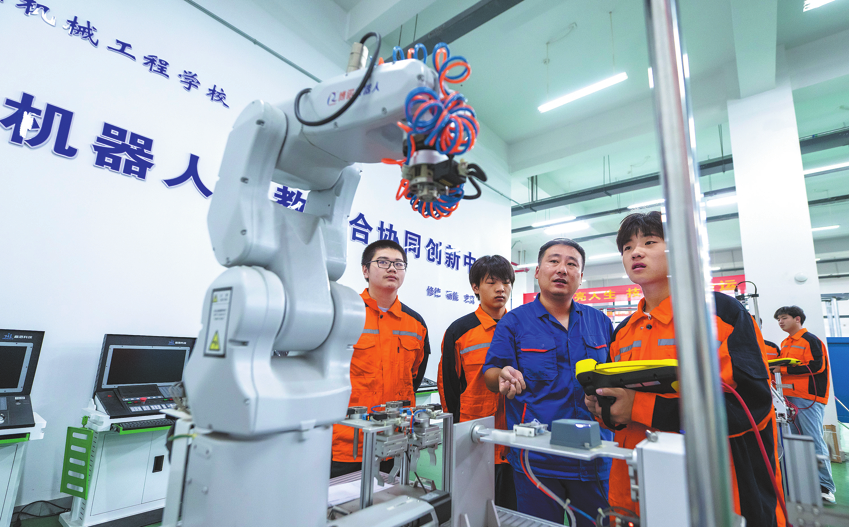The Study for Dreams Initiative, launched in 2016 by the Ministry of Education and the All-China Federation of Trade Unions, has undergone a significant transformation to address the evolving educational needs of industrial workers. Originally aimed at migrant workers, the initiative now encompasses all industrial employees, focusing on both academic and vocational training. This expansion is guided by comprehensive policies from various governmental bodies, with a goal to establish at least 300 educational projects by 2030, benefiting over 3 million workers. The initiative seeks to foster a culture of lifelong learning and enhance the skill sets of workers, ultimately contributing to the development of a highly qualified workforce in the industrial sector.
The upgraded initiative emphasizes collaboration among educational institutions, trade unions, and enterprises to optimize resource sharing and training opportunities. Successful case studies, such as those from Jiangsu and Chongqing, illustrate the initiative's impact on individual workers, enabling them to transition from entry-level positions to managerial roles through structured educational pathways. With substantial financial backing and a focus on integrating academic credentials with practical job skills, the initiative not only enhances workers' qualifications but also drives innovation and productivity across industries. As these alliances expand, they promise to significantly elevate the educational landscape for industrial workers, aligning workforce capabilities with the demands of a rapidly changing economy.









